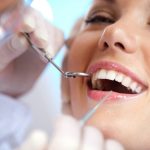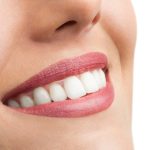5 Tips for Effective Teeth Brushing After Wisdom Tooth Extraction
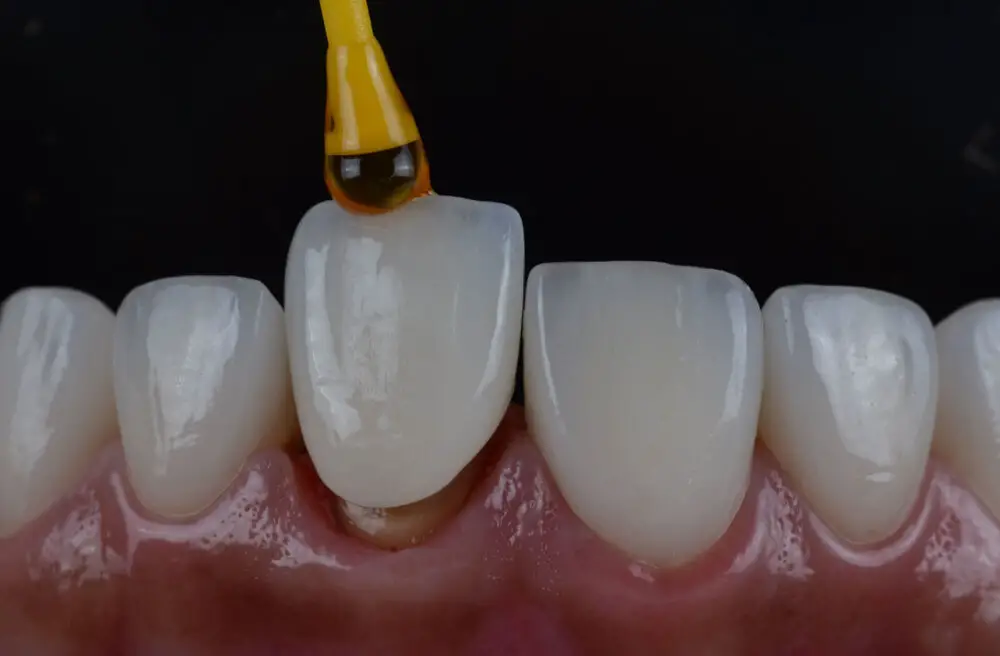
After a wisdom tooth extraction, it is essential to take extra care of your oral hygiene to avoid complications and ensure a speedy recovery. Brushing your teeth may seem like a simple task, but it requires some precautions and techniques to avoid causing damage to the surgical site or aggravating the healing process. In this article, we will provide you with five tips for effective teeth brushing after wisdom tooth extraction, so you can maintain your oral health and comfort. One of the most important things to consider after a wisdom tooth extraction is the timing of your teeth brushing routine. It is recommended to wait at least 24 hours after the surgery before brushing your teeth to give the surgical site enough time to heal and avoid dislodging any blood clots that may have formed. Once you start brushing, make sure to be gentle and avoid using a vigorous back-and-forth motion that can irritate the surgical site and cause bleeding. Using a soft-bristled toothbrush and a mild toothpaste can also help prevent any discomfort or damage to the sensitive area.
Wisdom tooth extraction is a surgical procedure that involves removing one or more wisdom teeth, the last set of molars that typically grow in during a person’s late teens or early twenties. These teeth can cause problems if they don’t have enough space to emerge properly, leading to pain, infection, and damage to surrounding teeth. The extraction process involves numbing the area with local anesthesia, making an incision in the gum tissue, and removing the tooth using forceps or a surgical drill. Recovery from wisdom tooth extraction can take several days to several weeks, during which time patients need to take extra care when brushing their teeth to avoid disrupting the healing process.
Effective teeth brushing after a wisdom tooth extraction is an essential part of the healing process. When a tooth is extracted, it leaves behind an open wound that requires proper cleaning and care to prevent infection. Brushing your teeth helps remove any bacteria and food particles that can accumulate in the area of the extraction site, which can lead to further complications. It is recommended to brush gently and avoid the area of the extraction site for the first 24 hours after the procedure. After that, you can resume brushing the area but with extra care and attention. Using a soft-bristled toothbrush and a mild toothpaste can help prevent irritation and discomfort in the wound. Proper teeth brushing can promote quicker healing and prevent any potential complications, ensuring a healthy and speedy recovery.
Wait for the Right Time

Waiting for the right time to brush your teeth after wisdom tooth extraction is crucial to ensure proper healing and prevent any complications. It is recommended to wait at least 24 hours before brushing your teeth, as your mouth needs time to recover from the surgery. Brushing too soon can dislodge the blood clot that has formed in the extraction site, leading to a painful condition called dry socket. Once the 24-hour period has passed, you can start brushing your teeth, but be gentle around the extraction site to avoid any irritation or bleeding. Using a soft-bristled toothbrush and a mild toothpaste can also reduce discomfort and promote healing. Remember to rinse your mouth with warm salt water after brushing to keep the extraction site clean and free from bacteria. It is important to note that each person’s recovery time may vary, and your dentist or oral surgeon may give you specific instructions on when to start brushing your teeth after wisdom tooth extraction. Following their advice and being patient can help you avoid any complications and achieve a successful recovery. Remember to also avoid using mouthwash, smoking, or drinking through a straw during the first few days after surgery, as these actions can also disrupt the healing process. By waiting for the right time to brush your teeth and taking care of your mouth properly, you can ensure a smooth and painless recovery after wisdom tooth extraction.
After undergoing wisdom tooth extraction, it is important to take care of your oral health to prevent any complications. One of the most crucial aspects to consider is the recommended waiting period before brushing. Dentists advise patients to wait for at least 24 hours before brushing their teeth after the surgery. This waiting period allows the wound to clot and heal properly, preventing any bleeding or damage to the surgical site. Furthermore, during this time, it is essential to maintain proper oral hygiene by rinsing your mouth with salt water solution to keep the area clean and free from bacteria. It is important to follow these guidelines to ensure a speedy and smooth recovery after wisdom tooth extraction.
Waiting is an essential part of the healing process after wisdom tooth extraction. Rushing to brush your teeth too soon after the procedure can damage the blood clot that forms in the socket and lead to complications such as dry socket. The blood clot is crucial in protecting the bone and nerves underneath, and any disturbance can cause severe pain and delay healing. It is recommended to wait at least 24 hours before brushing your teeth, and even then, it is essential to be gentle and avoid the extraction site. Waiting may require patience and discipline, but it is crucial to ensure a smooth and quick recovery and avoid any unnecessary complications.
During the waiting period after wisdom tooth extraction, when brushing your teeth, it is important to use alternative cleaning methods that are gentle on the surgical site. One such method is using a warm saltwater rinse to clean your mouth. This not only helps to promote healing but also removes any bacteria or debris that may be present in the mouth. Another alternative cleaning method is using a water flosser or oral irrigator to gently clean the teeth and gums without causing any irritation to the surgical site. It is also important to avoid brushing the surgical site directly and instead focus on cleaning the surrounding teeth and gums with a soft-bristled toothbrush. By incorporating these alternative cleaning methods into your post-operative dental care routine, you can help to ensure a speedy and successful recovery.
Use The Right Tool

Using the right tool is crucial when it comes to effective teeth brushing after wisdom tooth extraction. It is important to choose a soft-bristled toothbrush that is gentle on your sensitive gums and teeth. A toothbrush with stiff or hard bristles can damage your gums and even cause bleeding. Additionally, using a toothbrush that is too large or too small can make it difficult to reach all areas of your mouth, resulting in ineffective cleaning. Therefore, it is recommended to choose a toothbrush that is the right size for your mouth and has soft bristles that are gentle on your teeth and gums. In addition to choosing the right toothbrush, it is also important to use the right toothpaste. Toothpaste that contains harsh chemicals or abrasive ingredients can irritate your sensitive gums and teeth, causing discomfort and pain. It is recommended to use a toothpaste that is specially formulated for sensitive teeth and gums, such as one that contains fluoride and has a low abrasion level. By using the right toothpaste, you can effectively clean your teeth without causing any further damage or discomfort to your mouth. Overall, using the right tools for effective teeth brushing after wisdom tooth extraction is crucial for promoting healing and preventing any further complications.
Choosing the right toothbrush after a wisdom tooth extraction is crucial for effective oral care and faster recovery. It is recommended to use a soft-bristled toothbrush with a small head, as it is gentle on the sensitive gum tissue and reduces the risk of damaging the blood clot. Additionally, an electric toothbrush can be an excellent choice as it provides thorough cleaning without putting too much pressure on the teeth and gums. It is also important to replace the toothbrush every three to four months to ensure optimal hygiene and prevent bacterial buildup. By selecting the right toothbrush, patients can maintain proper oral hygiene after wisdom tooth extraction, promote healing, and prevent complications.
One of the most important decisions to make when brushing your teeth after wisdom tooth extraction is the type of toothbrush to use. Soft bristle brushes are highly recommended by dentists as they are gentle on your teeth and gums, reducing the risk of irritation and bleeding. On the other hand, hard bristle brushes can be too abrasive and cause damage to the sensitive areas of your mouth. The bristles of a soft brush are designed to bend and flex more easily, allowing them to reach every nook and cranny of your mouth without causing pain or discomfort. Ultimately, it is crucial to choose a toothbrush that is gentle yet effective in cleaning your teeth to ensure proper healing after wisdom tooth extraction.
When it comes to effective teeth brushing after wisdom tooth extraction, there are two main options to choose from: electric toothbrushes and manual toothbrushes. While manual toothbrushes have been the traditional choice for many years, electric toothbrushes have become increasingly popular in recent years due to their superior cleaning power. Electric toothbrushes use oscillating and rotating movements to remove plaque and bacteria from teeth and gums more effectively than manual toothbrushes. They also come with a timer to ensure that you brush for the recommended two minutes, and some models even have pressure sensors to prevent over-brushing. However, manual toothbrushes are still effective and can be a good option for those on a budget. Ultimately, the choice between electric and manual toothbrushes comes down to personal preference and budget.
Be Gentle
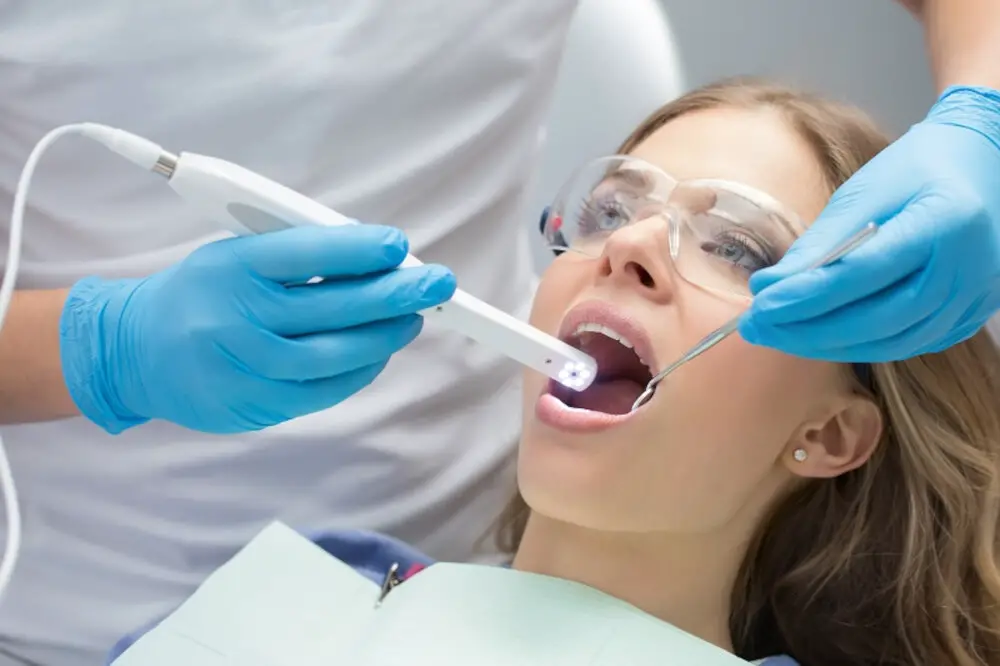
After wisdom tooth extraction, it is essential to be gentle with your oral hygiene routine, especially when brushing your teeth. Brushing your teeth can irritate the extraction site and cause bleeding, swelling, and discomfort. Therefore, it is crucial to use gentle strokes and a soft-bristled toothbrush to avoid damaging the healing tissues. You should avoid using a regular toothbrush as it can be too harsh for the sensitive area. Instead, opt for a toothbrush designed for post-extraction care. Also, be sure to avoid using mouthwash or rinsing your mouth vigorously for the first 24 hours after the surgery. This can cause the blood clot to dislodge and delay the healing process. Additionally, it is important to be patient and take your time while brushing your teeth after wisdom tooth extraction. Rushing can lead to unnecessary pressure on the extraction site, causing discomfort and pain. Take your time and be gentle, using small circular movements to clean your teeth thoroughly. Avoid brushing the extraction site directly, as this can irritate the area and delay the healing process. Remember to rinse your mouth gently with warm saltwater after brushing to help reduce inflammation and promote healing. By being gentle with your brushing technique, you can ensure a speedy recovery and prevent any complications from arising.
Being gentle while brushing your teeth is crucial, especially after wisdom tooth extraction. When you brush too vigorously, you can damage the sensitive gum tissues and cause bleeding, irritation, or even infection. Additionally, brushing too hard can remove the protective layer of enamel on the teeth, leading to sensitivity and cavities. Therefore, it’s essential to use a soft-bristled toothbrush and gentle, circular strokes to clean your teeth and gums without causing any harm. Moreover, it’s advisable to avoid using toothpaste with harsh ingredients or acidic content that can further damage the delicate oral tissues. By being gentle while brushing, you ensure a healthy and speedy recovery after wisdom tooth extraction while maintaining good oral health overall.
Proper brushing technique is crucial in maintaining good oral hygiene, especially after wisdom tooth extraction. To avoid discomfort or damage, start by using a soft-bristled toothbrush and a fluoridated toothpaste. Gently brush the teeth in circular motions, aiming for a two-minute brushing time. Make sure to also brush the tongue and roof of the mouth to remove any bacteria or debris. Avoid applying too much pressure or using a back-and-forth motion, as this can cause irritation or damage to the gums and surrounding tissues. Rinse your mouth thoroughly with water after brushing to remove any remaining toothpaste or debris.
Brushing too hard can cause damage to your teeth and gums. Overly vigorous brushing can wear down the enamel on your teeth, making them more susceptible to cavities and sensitivity. It can also lead to gum recession and damage the delicate tissue that surrounds your teeth. Using a toothbrush with hard bristles can exacerbate these problems. When brushing after wisdom tooth extraction, it’s important to be gentle and use a soft-bristled toothbrush to avoid irritating the surgical site. Remember, effective teeth brushing doesn’t mean brushing too hard, it means brushing correctly and consistently.
Rinse with Saltwater

Rinsing with saltwater is one of the most effective ways to promote healing and prevent infection after wisdom tooth extraction. Saltwater helps to reduce inflammation, swelling, and discomfort in the affected area. It also works as a natural antiseptic and helps to kill the bacteria that can cause infection. To make a saltwater solution, mix one teaspoon of salt in a glass of warm water and stir until the salt dissolves. Then, rinse your mouth gently with the solution for 30 seconds, spit it out, and repeat the process two to three times a day. It’s important to note that you should not rinse your mouth vigorously or use mouthwash during the first 24 hours after extraction. This can dislodge the blood clot and delay the healing process. Instead, wait until the next day and then start rinsing with saltwater. Be gentle and avoid using force when spitting out the solution. Remember that the more carefully you follow your dentist’s instructions, the faster and smoother your recovery will be. So, make sure to rinse with saltwater regularly and keep your mouth clean to promote healing and prevent complications.
Rinsing with saltwater is a simple and effective way to promote healing after wisdom tooth extraction. Saltwater helps to reduce inflammation, swelling, and pain in the affected area by drawing out excess fluids. The salt in the water also has antibacterial properties, which can help to prevent infection and promote good oral hygiene. Additionally, saltwater rinses can help to soothe sore gums and prevent dry socket, a painful condition that can occur when the blood clot that forms after extraction becomes dislodged. Overall, incorporating saltwater rinses into your post-extraction routine can help to speed up the healing process and ensure a comfortable recovery.
Saltwater rinse is a simple and effective way to promote healing and reduce pain and inflammation after wisdom tooth extraction. To make the rinse, mix 1/2 teaspoon of salt with 8 ounces of warm water. Stir until the salt is dissolved, then swish the solution around your mouth for 30 to 60 seconds before spitting it out. You can use saltwater rinse up to 4 times a day for the first few days after your procedure. The rinse helps to keep the surgical site clean and free of bacteria, which can reduce the risk of infection. It also soothes the gums and helps to reduce swelling and discomfort. Be sure to use saltwater rinse in addition to your regular oral hygiene routine, not as a replacement for brushing and flossing.
After wisdom tooth extraction, it is essential to maintain a proper oral hygiene routine to prevent any complications. One of the most crucial steps in this routine is rinsing. Rinsing your mouth with warm salt water helps to keep the extraction site clean and free from bacteria. However, it is essential to maintain the right frequency of rinsing. Over-rinsing can lead to irritation and delay the healing process, while under-rinsing can result in the accumulation of food particles and bacteria, leading to infection. It is recommended to rinse your mouth gently with warm salt water after every meal and before bedtime until the extraction site heals completely.
Wisdom tooth extraction is a common dental procedure that requires proper care and attention during the recovery period. One of the essential parts of this recovery process is ensuring that you maintain good oral hygiene, which involves brushing your teeth effectively. In our article titled \5 Tips for Effective Teeth Brushing After Wisdom Tooth Extraction,\ we highlighted several key tips to ensure that you brush your teeth correctly. These tips include using a soft-bristled toothbrush, being gentle while brushing, avoiding the extraction site, rinsing your mouth with saltwater, and waiting for at least 24 hours before brushing. By following these tips, you can help prevent complications and promote faster healing after your wisdom tooth extraction.
Following the tips for successful recovery after a wisdom tooth extraction is crucial to ensure a smooth and successful healing process. Neglecting these tips can result in complications such as infections, bleeding, and dry socket. It is essential to keep the extraction site clean by brushing gently and avoiding hard bristles or vigorous rinsing. Additionally, avoiding hot, spicy, and crunchy foods can prevent further irritation and discomfort. Pain management is also vital, and it is crucial to take medication as prescribed and avoid smoking or using straws, which can dislodge the blood clot. Overall, following these tips can help patients recover faster and prevent any potential complications, ensuring a comfortable and successful recovery.
If you have concerns or questions related to your oral health, it is highly recommended to consult a dentist. Your dentist can provide you with professional advice and guidance on how to maintain good oral hygiene, prevent dental problems, and treat any existing issues. This is especially important after wisdom tooth extraction, as it is a sensitive time for your mouth and requires extra care. Consulting a dentist can help you ensure that you are taking the necessary steps to properly care for your teeth and gums, and can prevent any potential complications or issues from arising. So, don’t hesitate to reach out to your dentist if you have any concerns or questions about your oral health.
Conclusion
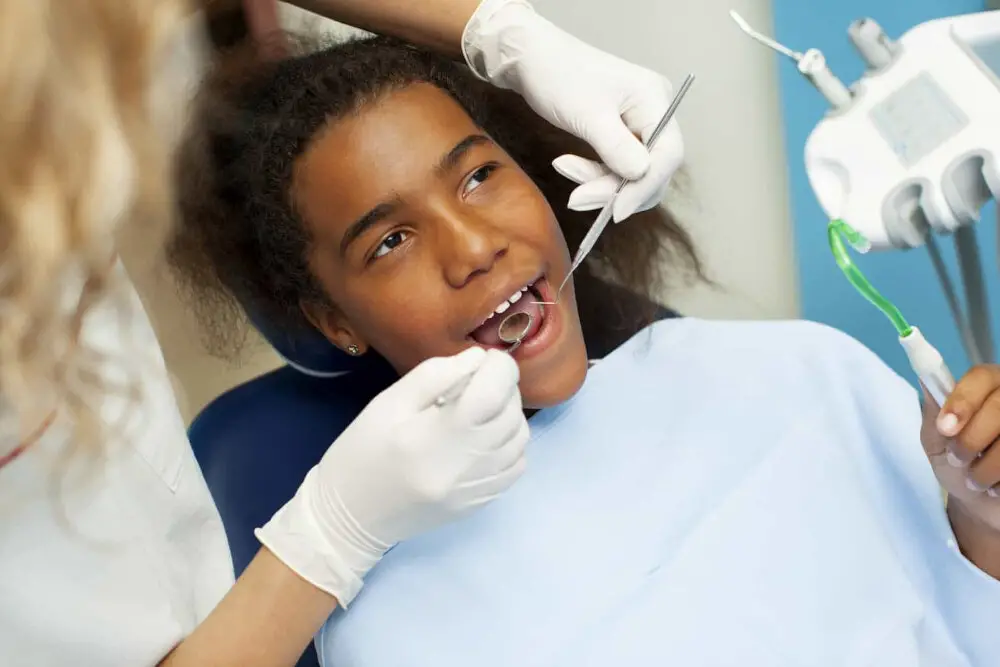
In conclusion, proper oral hygiene after wisdom tooth extraction is essential to ensure speedy recovery and prevent complications. Following the five tips outlined, including using a soft-bristled brush, avoiding the extraction site, using a saltwater rinse, being gentle, and being patient, can help to make the brushing process easier and more effective. Remember, taking care of your teeth is important for your overall health, so don’t neglect your oral hygiene even after a dental procedure. By following these tips, you can maintain good oral health and ensure that your smile stays healthy and bright for years to come.






